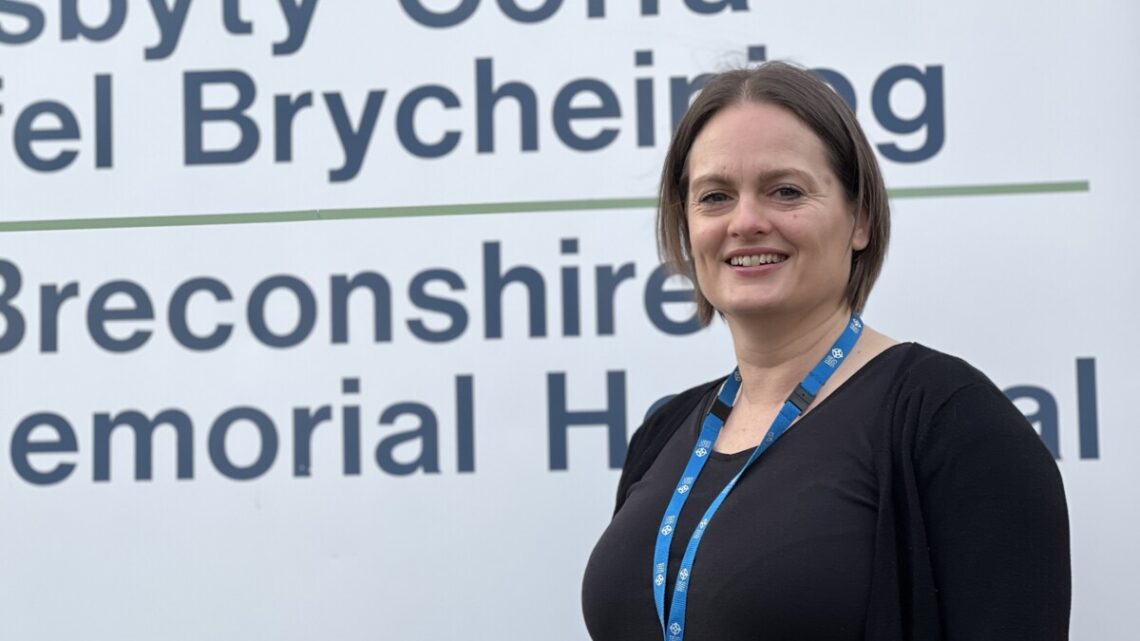
Civvy Life – Applying skills in the NHS (Powys – Mid Wales
Lynda Mathias Served for 25 years before taking on her current challenge as Lead Clinician, Quality and Safety, with Powys (Mid Wales) Teaching Health Board.
What’s your Military background?
I joined the Queen Alexandra’s Royal Army Nursing Corps as a private in 1996, to start student nurse training. My intake was the first after they’d suspended their training due to the Gulf War. I left in January last year as a Lieutenant Colonel.
How was resettlement?
It was slightly different I suppose, because it was during the first lockdown that I handed in my notice. I’d spoken to those who’d gone through the process, and they gave me a lot of advice which was really useful. I found it fine though because during my last posting I’d gone to NHS England in London as the Military Liaison Officer and I accrued quite a lot of annual leave. My actual resettlement time was nice in that I didn’t have any pressure from work so I could focus on what I wanted to do and I was able to relocate back home in Mid Wales. All the courses I applied for were all online, so it was quite a nice, settled time for me.
How did you get involved with Powys Teaching Health Board?
When I first left the Army, I was very fortunate in that NHS England knew I was leaving and they actually approached me saying that they’d got a job available if I wanted to apply for it. So, I took a fixed term contract and it was just lovely to be able to have that security of stepping into a job. I always look back and think, well actually my time working there was probably my interview over a period of months. They get to know you and what you’re about and what you can do, really. They would have offered me a permanent contract however, I was settled back home in Powys in Mid Wales. I prefered something nearer to home and Powys Teaching Health Board is literally 10 minutes down the road. So, I started looking at what jobs were available with them and my role currently, as Lead Clinician for Quality and Safety, came up and that caught my eye immediately because I’d done a lot of work in the Military with governance and assurance and I thought I could definitely step into this role. I applied for it and they offered me the position.
What were those Military acquired skills and experiences that gave you the confidence to say ‘that’s for me’?
The nursing knowledge I could bring was transferable, however the Military population is different to the demographic I’m responsible for now. But again, that is not something that put me off because I think you take with you that confidence that, if you don’t know something, you don’t just let that put you off, you find the answer, you don’t wait to be told, you take that step forward and find out for yourself. I knew I had that core understanding of what the job required and actually everything else around it was what I could pick up pretty quickly and recognise the areas you’re not quite as familiar with; you just go away and search for the answers and solutions. I think confidence in going into a new environment and working with a new team is something we take with us. We’re so used to being parachuted into a new experience or a new environment, with new people, and we just know how to engage with people and get on with teams and settle in pretty quickly.
What’s Powys Teaching Health Board’s attitude regarding Veterans?
I think because of where we are located, obviously there are lots of Military links. There is, a high prevalence of Veterans and they’re very much in tune with that, a lot of work is undertaken in supporting them. As an employer, any NHS health board has jobs for everybody, so it’s not just doctors and nurses, there is literally something for everyone, administration, or healthcare, even for people without professional qualifications. There are schemes to put you on a path to getting those qualifications, so they’re very open and I think very used to a Military population.
What would be your best advice for current Service-leavers?
I suppose the first thing would be not to make rash decisions. However, if and when you come to that decision, and you think yes, it is time for me to move on, I’d say plan early and plan well. You’re given a really good opportunity to resettle with the funding you get for courses and time allocated. It’s about really using it as wisely as you can, talking to as many people as you can, taking full advantage of what’s offered, and instead of perhaps thinking it’s all about getting courses to put on your CV, consider the work placements in your area. Because showing what you can do instead of talking about what you can do, counts sometimes more than what is on your CV.
Look at all opportunities and possibilities – but it’s so much about planning, don’t leave it to the last minute.
What do you miss from the Forces?
Well, I look back over my career and I think, wow! When you’re writing a job application it makes you put down your previous jobs and experiences and reflect on what you’ve done and what you’ve achieved. That’s everybody, not just me. The people I’ve met and the experiences I’ve had. I think it’s that variety that the Military offer. You don’t fully appreciate it at the time and it’s only when you’re, I suppose, in the position I am now, and you look back.
Even so, you can’t keep looking back. I think what we need to do is look forward because actually, this is the next chapter in your Military life, as a Veteran. Just looking forward in a positive way but always carrying that experience with you.




